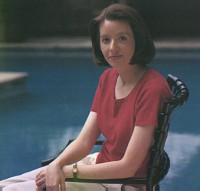
I just read a review copy of the third edition of Yves Lavandier’s WRITING DRAMA. The book was translated from the French edition by Bernard Besserglik, so I am not exactly sure who I should blame for how dull the writing is. But I can certainly point the finger at Yves for the pomposity and the sheer wordiness. WRITING DRAMA is actually a very good book about writing – whether it’s plays, scripts or books — with lots of practical advice and important lessons about story structure, character development, and dialogue to offer. Unfortunately, I’ve read software manuals that are more lively and engaging.
Yves is obviously a bright, educated guy who has seen a lot of movies and thought hard about them…and he wants to be sure you know it. So to get to his very good advice, you have to endure lots of irrelevant digressions, pointless footnotes, self-indulgent pontificating, and lots of tiresome repetition (and far more examples and film references than are necessary). However there’s so much practical wisdom in the book that I wish he’d had a decent editor or at least followed his own good advice:
Economy – the art of condensing a text, of conveying as much information as possible in a compact form – is highly gratifying to the spectator. […] the writer should work through it again adding stylistic features and as many touches of humour and poetry as can be managed, in other words, the literary flourishes that make it more agreeable to read, and thus improve its chances of pleasing…
If he’d taken his own advice, the book would have been a quarter of the size and much more useful, not to mention more readable (For starters, he could ditch what amounts to a 30 page introduction, in which he actually tells the reader they might want to skip ahead a few pages).
There’s a lot to criticize about the book, particularly his lecturing about what’s right and wrong about certain movies, his inane rules for writing for children, his ponderous deconstruction of comedy, and his opinions on television writing. But all that said, I would highly recommend the book to aspiring writers…and even established professionals looking for a little refresher. It worked for me. I am in the midst of adapting a book that I optioned and his book really got me thinking about my task. Reading WRITING DRAMA definitely helped me focus…to sharpen my outline and refine the character arcs. And I have been a working, professional screenwriter for a while now.
Yves begins his book by stating a few points that should be self-evident, but it’s amazing how many writers of scripts and novels today seem to forget them:
[Writers] are all without exception writing for other people, for that set of others known as the audience. A work of drama exists only for and by virtue of the public. It takes two to speak this language: writer and receiver, with the actor-character as intermediary. Indeed, however much the actors pretend to be addressing each other, everything they say is directed in just one direction: at the spectator. […] Writers who do not take the trouble to master the language of their art, in other words to find out how the public receives and perceives drama, are too often inaccessible. Perhaps they believe that it is up to the public to be curious about their work, when it fact it is up to them to stimulate the public’s curiosity. […] Drama does not exist because there are writers of drama; it is rather that writers of drama exist because there is a human need for drama. Whether he likes it or not, the writer’s role is to meet this need.
His lengthy section on conflict and emotion is particularly strong.
Conflict is at the heart of drama because conflict is at the heart of life, of which drama is an imitation. […] Conflict is a revealer of personality, which is why the great writers of drama have used it so abundantly. […] Conflict means opposition and thus obstacle.
He later writes, in his chapter on character, that:
The action that a character adopts when faced with a conflict, either to prevent it or to overcome it, is one of the best indicators of the kind of person he is.
Those may seem like obvious points, but it’s surprising how many rookie screenwriters and novelists fail to realize how important conflict is, thinking instead that witty description in the action and expository dialogue are the best ways to reveal character. Whenever I am writing, and a scene doesn’t work, there’s usually a problem with the conflict and the objectives each character is pursuing, or not pursuing, in the scene. Yves offers a useful schematic for the basic dramatic process:
Character—objective—obstacle—conflict–emotion
A character seeks to achieve an objective but encounters obstacles, which gives rise to conflict and leads to emotion, not just for the character but also for the spectator.
This not only leads to drama, but also to comedy. Conflict is storytelling and it is character. His chapters on the Protagonist, Objectives and Obstacles are also full of good points and interesting observations:
Some writers refuse to be cruel to their protagonists. It is simply beyond them. They identify so much with their characters that they suffer if they have to make them suffer. They fail to realize that the best way of getting the spectator to share their concern and love for their protagonists is precisely to spare them nothing.
I agree with him. And yet, he later advises:
When a writer wishes to indulge his sadistic tendencies, it is better that he should do so on a secondary character rather than the protagonist.
I am not sure from reading his book where he actually draws that line, but it doesn’t matter. I can live with his apparent contradiction. Overall, there’s a lot a writer can learn from Yves’ book and, despite the wordiness and occasional pomposity, it may be one of the best books on screenwriting out there.
As an aside (and there are many, many, many of them in the book), he’s also a persuasive defender of, and believer in, writers as the primary creative force in film-making:
It is the writer’s role to determine everything meaningful that goes into a work of drama. In theory, the actors, director, production designer, composer or editor should not have to do anything more than recreate, using their respective skills, the meaning intended by the writer. They are servants of the writer’s vision in a sense which, I stress, is by no means pejorative and furthermore requires real talent.
So it’s appropriate to close on one of his earliest and truest observations:
[…] people talk as if the screenplay does not exist. Or no longer exists. We are told the screenplay is a transitional phenomenon, existing only briefly, its relation to the film comparable to that of a caterpillar to a butterfly. This might be true of the object itself, the grubby manuscript that circulates from hand-to-hand on the set […] but it is emphatically not true of the text as a work of art, the product of a writer’s imaginings, the film narrative. […] it is often the key element on which the quality of the movie depends.
If you’ve got the fortitude to slog through this book, and if you can stay awake, you will be rewarded with some valuable advice that will help you become a better writer. (Now if only his publisher could come out with an abridged edition…but with some liveliness, humor and character added!).











